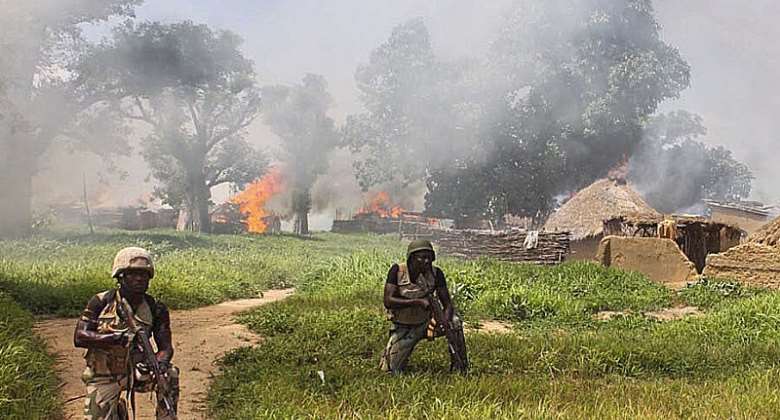Veteran broadcaster and former United Nations Radio Chief and Communications Advisor, Joseph Roberts Mensah, known widely as “Uncle Kojo Mensah,” has voiced bold and candid insights amid ongoing tensions in Bawku, a city in Ghana’s Upper East Region marred by decades of conflict rooted in complex ethnic, land, and political disputes. His call for “by-force peace” ignites fresh debate about whether Ghana’s longstanding peace efforts can genuinely stem the cycle of violence that has plagued the region for generations.
The Bawku conflict is not new. Historian Emmanuel Kojo Nartey traces its origins to colonial times when administrative boundaries and land rights were arbitrarily delineated, exacerbating ethnic tensions between the Mamprusi, Kusasi, and other groups. Post-independence Ghana, with its promise of unity, was unable to fully address these deep-seated grievances. The disputes over land ownership—crucial in subsistence farming and local livelihood—began as sporadic clashes but escalated as political manipulations and marginalization took root.
In the 1980s and 1990s, successive governments attempted peace settlements, but many fell short due to inadequate enforcement, lack of inclusive dialogue, and perceived bias in resource distribution. These failures have continued to breed distrust, fueling cycles of revenge and escalating violence—only temporarily subdued by military interventions that often left wounds unhealed.
Kojo Mensah’s indicates that there is a broader problem: the failure of leadership at various levels to hold perpetrators accountable, and the neglect of systemic injustices. Past peace accords have often been superficial, and only on the surface, he says, and indicates that there is little proper and systematic follow-up on implementation or community reintegration. Human rights reports have documented cases of extrajudicial killings, destruction of property, and displacement, revealing a pattern of impunity that perpetuates the hostility.
Despite both international and national efforts—including peace missions and dialogue forums—the root causes remain unaddressed, and conflict triggers continue to be manipulated for political gains, especially during Ghana’s electoral cycles. Kojo Mensah notes that there are ‘entrenched grievances that no amount of dialogue alone has been able to resolve’.
In his interview with BrassRing Media Network’s WatchDog newspaper, Mr. Mensah suggests that a paradigm shift is necessary. He advocates for a peace that is enforced—as he describes it, “a by-force peace”—arguing that history shows peaceful dialogue without enforceable agreements often fails to root out violence for long. Having worked in various peacekeeping environments for the UN, he notes that simple talk, will not resolve such deeply held resentments.
His proposed strategy involves a binding resource-sharing agreement, enforced through signed commitments by clan leaders and backed by government authority. He envisions an annual review to sustain peace, premised on the belief that “peace will not be done because they went and talked.” This echoes a hardline approach, reminiscent of Ghana’s past military interventions aimed at restoring order but lacking sustained social reconciliation efforts.
Mensah emphasizes that sustainable peace must also be rooted in addressing economic frustrations. The region’s high unemployment, especially among youth, exacerbates the cycle of violence. Past initiatives aimed at development—such as agricultural projects and infrastructural investments—have often been uneven or insufficient, highlighting the importance of equitable resource distribution. He questions the centralization of resources—why many developmental efforts and government agencies are concentrated in Accra—calling for a more balanced approach that prioritizes regional development. Correcting these disparities is essential because economic marginalization directly feeds into the cycle of conflict.
While Mr Mensah’s “by-force” peace proposition is controversial, it shines a spotlight on the urgent need for Ghana to confront its history of conflict with honesty and resolve. Past solutions have often been superficial, aimed at temporary peace rather than addressing underlying systemic issues. To break this cycle, Ghana requires accountable leadership that enforces justice, inclusive dialogue capable of healing rifts, and sustained socio-economic investments. Without such comprehensive strategies, peace in Bawku remains fragile—more a temporary truce than a lasting solution.
As Ghana moves forward, the lessons of history urge caution but also provide hope: with genuine accountability, equitable resource sharing, and community-driven reconciliation, the cycle of violence in Bawku can be broken.


